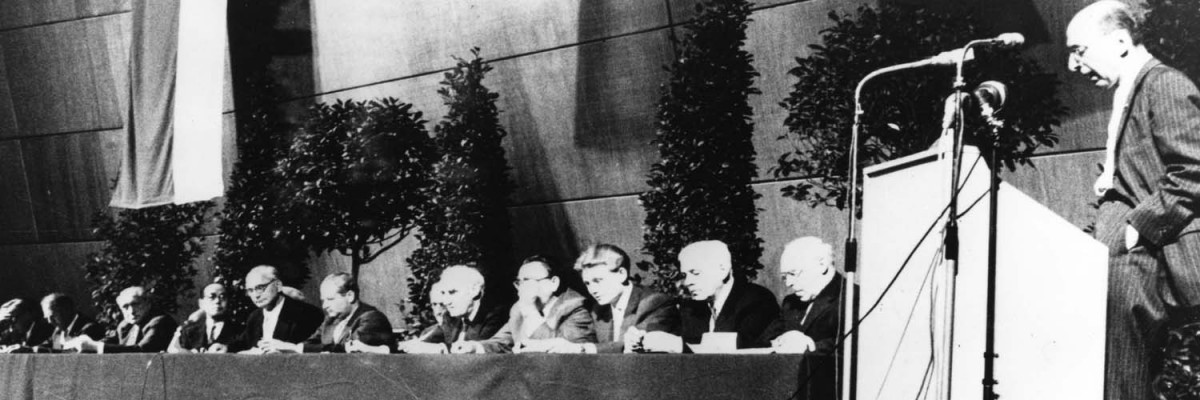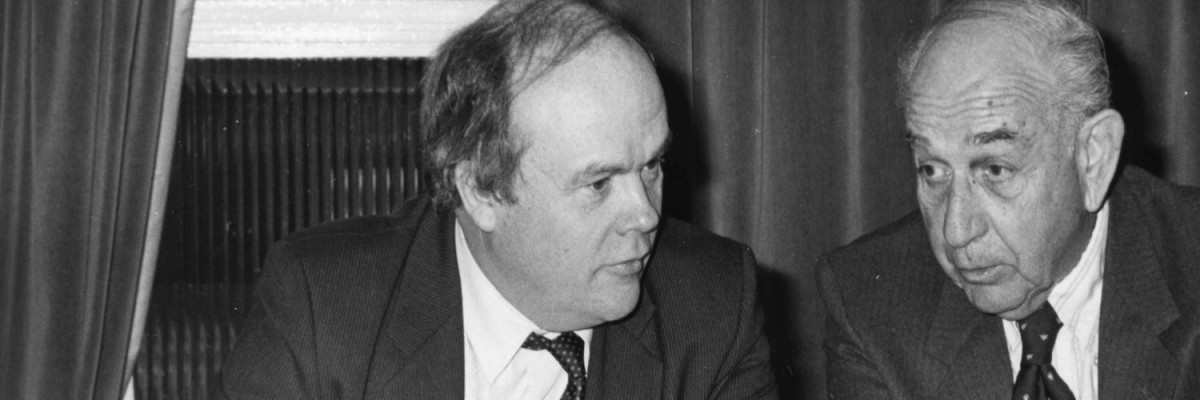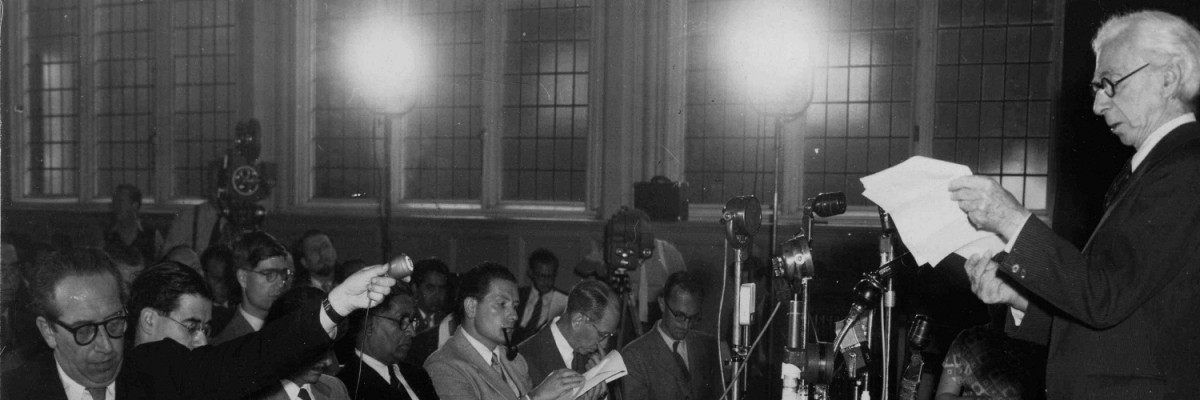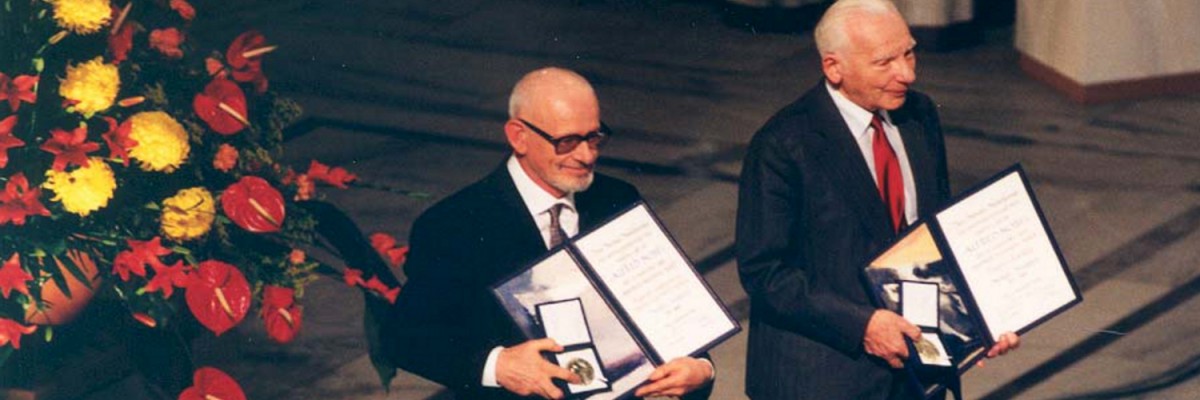The first Pugwash Conference on Science and World Affairs took place in Nova Scotia in 1957. From it grew a network of national groups, and an international secretariat which organised further conferences and promoted dialogue across political divides.
During the Cold War Pugwash strove to diminish the part played by nuclear weapons in international affairs and contributed to the elaboration of the Partial Test Ban Treaty (1963) and the Nuclear Non-Proliferation Treaty (1968).
This work was led by Joseph Rotblat, a Polish-born scientist who emigrated to Britain in 1938. Rotblat took part in the Manhattan project in 1944, resigning from that project when it became apparent that the risk of Nazi Germany acquiring atomic weapons had receded. He committed the rest of his life to peace advocacy and the ethical application of science.
Resources on Pugwash history can be found online here
A series of videos, touching on Pugwash history and Rotblat, can be found here
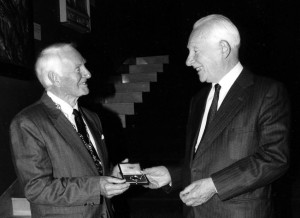
Joseph Rotblat (r) receiving Nobel Peace Prize 1995 ©Pugwash Photo Archive
Rotblat’s papers are housed in the Churchill Archives Centre, University of Cambridge.
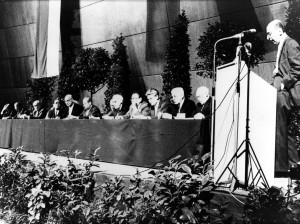
16th Pugwash conference in Sopot, Poland Sept 1966 (tbc) ©Pugwash Photo Archive
Since the establishment of Pugwash in 1957, the organisation has published books, proceedings and reports of more than 400 conferences, symposia and workshops; policy and research reports; occasional papers and pamphlets, together with a regular newsletter which started in 1963. The most recent of these are available online, but for previous decades, copies of many of these publications are available from the British Pugwash office.
Work is currently taking place to digitalise the newsletters and to produce a handlist of Pugwash publications held in this office.
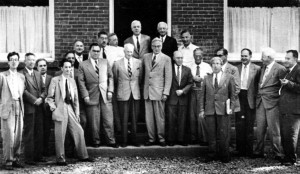
1st Pugwash conference in Pugwash, Nova Scotia July 1957 ©Pugwash Photo Archive
Until his death in 2005, Joseph Rotblat worked in the current office of British Pugwash at 63A Great Russell Street in London where a large collection of photographs, publications, newsletters and memorabilia remains.
British Pugwash, together with Sandra Ionno Butcher, formerly the Director of the Pugwash History Project, launched an initiative to digitalise and archive the many photos held in the British Pugwash office that bring to life the history of Pugwash.
The Pugwash Photo Archive aims to make these photos accessible to researchers and publishers, as far as possible.
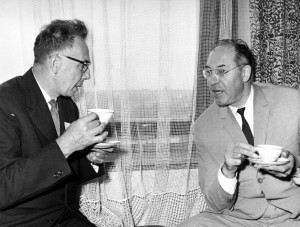
l. Acad. E L Velikov (Russia); r. Martin Kaplan (USA), Pugwash 47th Symposium London Dec. 1985 ©Pugwash Photo Archive
In previous years, we created a blog which aims to involve Pugwash members, and others who are knowledgeable of our history, in our ongoing research on the photo archive.
There is now a significant collection of photographs, ranging through the decades of Pugwash history from the 1950s to the present. We continue to ask for help in identifying specific photos or the people shown in them. We do hope you will visit the blog and enjoy exploring these snapshots of history.

